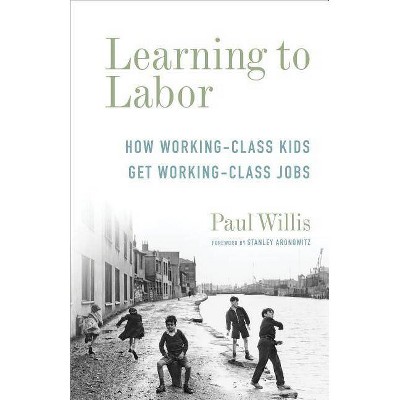Sponsored

Up in Arms - by Adam E Casey (Hardcover)
$19.28Save $12.72 (40% off)
Out of Stock
Eligible for registries and wish lists
Sponsored
About this item
Highlights
- An "extraordinary...must-read" (Steven Levitsky, New York Times-bestselling coauthor of How Democracies Die) look at how support from foreign superpowers propped up--and pulled down--authoritarian regimes during the Cold War, offering lessons for today's great power competition Throughout the Cold War, the United States and Soviet Union competed to prop up friendly dictatorships abroad.
- About the Author: Adam E. Casey is an analyst in the United States government.
- 336 Pages
- Political Science, Geopolitics
Description
About the Book
"Throughout the Cold War, the United States and Soviet Union strategized to prop up friendly dictatorships abroad. Today, it is commonly assumed that the two superpowers' military aid enabled the survival of allied autocrats, from Taiwan's Chiang Kai-shek to Ethiopia's Mengistu Haile Mariam. In Up in Arms, political scientist Adam E. Casey rebuts the received wisdom: Cold War-era aid to autocracies often backfired. Casey draws on extensive original data to show that, despite billions poured into friendly regimes, US-backed dictators lasted no longer in power than those without outside help. In fact, American aid regularly destabilized autocratic regimes. The United States encouraged the establishment of strong, independent armies like its own, which then often incubated coups. By contrast, Soviet aid incentivized the subordination of the army to the ruling regime, neutralizing the threat of military takeover. Ultimately, Casey concludes, it is subservient militaries-not outside aid-that help autocrats maintain power. In an era of renewed great power competition, Up in Arms offers invaluable insights into the unforeseen consequences of overseas meddling, revealing how military aid can help pull down dictators as often as it props them up"--Book Synopsis
An "extraordinary...must-read" (Steven Levitsky, New York Times-bestselling coauthor of How Democracies Die) look at how support from foreign superpowers propped up--and pulled down--authoritarian regimes during the Cold War, offering lessons for today's great power competition Throughout the Cold War, the United States and Soviet Union competed to prop up friendly dictatorships abroad. Today, it is commonly assumed that this military aid enabled the survival of allied autocrats, from Taiwan's Chiang Kai-shek to Ethiopia's Mengistu Haile Mariam. In Up in Arms, political scientist Adam E. Casey rebuts the received wisdom: aid to autocracies often backfired during the Cold War. Casey draws on extensive original research to show that, despite billions poured into friendly regimes, US-backed dictators lasted in power no longer than those without outside help. In fact, American aid often unintentionally destabilized autocratic regimes. The United States encouraged foreign regimes to establish strong, independent armies like its own, but those armies often went on to lead coups themselves. By contrast, the Soviets promoted the subordination of the army to the ruling regime, neutralizing the threat of military takeover. Ultimately, Casey concludes, it is subservient militaries--not outside aid--that help autocrats maintain power. In an era of renewed great power competition, Up in Arms offers invaluable insights into the unforeseen consequences of overseas meddling, revealing how military aid can help pull down dictators as often as it props them up.Review Quotes
"Provocative."--The Foreign Service Journal
"An original and compelling analysis."--Foreign Affairs
"A methodical study that largely avoids moral posturing, especially about U.S. policies and decisions. That alone justifies taking it seriously... Up in Arms is apposite to the moment."--Wall Street Journal
"Well written and clearly the product of prodigious research. ...The leaders of the great powers could start eyeing Cold War-inspired playbooks like Casey's, with dire results for everyone caught in between."--New York Times
"A valuable analysis of how military aid to other countries can hinder dictators as much as it can help them."--Library Journal
"Adam Casey's groundbreaking book turns conventional wisdom on its head, showing that American aid to dictators during the Cold War often destabilized and shortened rather than prolonged autocratic rule. Using vivid historical detail, innovative new data, and careful analysis, Casey offers a timely and well-researched corrective with important lessons for the current era of renewed great power competition."--Sheena Chestnut Greitens, University of Texas at Austin
"Casey capably delves into a key U.S. policy of the Cold War and the reasons for its successes and failures."--Kirkus
"A brilliant and timely book. Adam Casey shows how US military aid for autocrats can sometimes erode their rule, rather than strengthen it, and how the strategic outcomes of such aid are uncertain and unpredictable. Up in Arms is a powerful reminder of the limitations of military assistance to dictatorships."--Odd Arne Westad, author of The Cold War: A World History
"US- and Soviet-backed client regimes have been much discussed but little studied. As a result, we know little about the sources of their survival or collapse during the Cold War. Based on an extraordinary study of 280 Cold War autocracies, Up in Arms changes that. A brilliant scholar of authoritarianism, Adam Casey shows that although client-regimes were more stable than other Cold War autocracies, US-backed regimes were far less stable than Soviet-backed ones. He then teaches why. Up in Arms is a must-read for anyone interested in the sources of authoritarian durability or the geopolitics of the Cold War."--Steven Levitsky, New York Times-bestselling coauthor of How Democracies Die
About the Author
Adam E. Casey is an analyst in the United States government. His writing has appeared in the Washington Post, Foreign Affairs, and Foreign Policy, and his research has been cited by the New York Times, the Economist, and Bloomberg, among others. He received his PhD in political science from the University of Toronto. A native of Minnesota, he lives in Maryland.
Dimensions (Overall): 9.29 Inches (H) x 5.91 Inches (W) x 1.34 Inches (D)
Weight: 1.15 Pounds
Suggested Age: 22 Years and Up
Number of Pages: 336
Genre: Political Science
Sub-Genre: Geopolitics
Publisher: Basic Books
Format: Hardcover
Author: Adam E Casey
Language: English
Street Date: April 2, 2024
TCIN: 89725178
UPC: 9781541604018
Item Number (DPCI): 247-38-9511
Origin: Made in the USA or Imported
If the item details aren’t accurate or complete, we want to know about it.
Shipping details
Estimated ship dimensions: 1.34 inches length x 5.91 inches width x 9.29 inches height
Estimated ship weight: 1.15 pounds
We regret that this item cannot be shipped to PO Boxes.
This item cannot be shipped to the following locations: American Samoa (see also separate entry under AS), Guam (see also separate entry under GU), Northern Mariana Islands, Puerto Rico (see also separate entry under PR), United States Minor Outlying Islands, Virgin Islands, U.S., APO/FPO
Return details
This item can be returned to any Target store or Target.com.
This item must be returned within 90 days of the date it was purchased in store, shipped, delivered by a Shipt shopper, or made ready for pickup.
See the return policy for complete information.
Frequently bought together

$7.31
MSRP $7.99
Buy 1, get 1 50% off select books
5 out of 5 stars with 16 ratings

$18.88
MSRP $27.00
Buy 1, get 1 50% off select books
4.8 out of 5 stars with 575 ratings
Trending Non-Fiction

$15.68
Buy 1, get 1 50% off select books
4.8 out of 5 stars with 205 ratings

Highly rated
$19.31
was $20.98 New lower price
Buy 1, get 1 50% off select books
4 out of 5 stars with 68 ratings

$18.28
was $19.58 New lower price
Buy 1, get 1 50% off select books
4.7 out of 5 stars with 17 ratings

$4.59
MSRP $7.99
Buy 1, get 1 50% off select books
4.8 out of 5 stars with 124 ratings

$6.20
MSRP $10.95
Buy 1, get 1 50% off select books
4.8 out of 5 stars with 33 ratings

$7.09
MSRP $9.99
Buy 1, get 1 50% off select books
4.9 out of 5 stars with 46 ratings
Discover more options
Related Categories
5.0 out of 5 stars with 1 reviews









